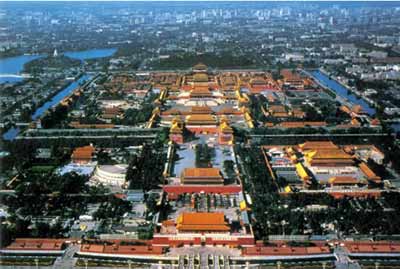| Tools: Save | Print | E-mail | Most Read |
| Fengshui Cultural Heritage Bid Fans Science vs Superstition Debate |
| Adjust font size: |
A
"I was pressured to stop the application before I finished it by a leader of Shanghai Social Sciences Association right after the local newspaper, Oriental Morning Post, released the story," said Zhang Liangren, vice chairman of the Shanghai Life Esthetics Association. Zhang would not reveal the name of the leader, but he said the pressure began after the Oriental Morning Post published an allegedly slanted account of his application, which he planned to submit this month. "The main reason why fengshui faces opposition is because many people and government officials think it is superstitious," Zhang said. Widely practised in Fengshui means "wind and water" if directly translated from Chinese. It was also called Kanyu in ancient Chinese, meaning a geomantic omen applied to a building or a piece of land. Traditionally, fengshui practitioners were usually consulted before construction or renovation of a building. "Fengshui is a branch of science, rather than superstition," says the application of the Shanghai Life Esthetics Association, a member organization of Shanghai Social Sciences Association. "As a building and location evaluation based on geology, landform and physiognomy, it is an important part of traditional Chinese culture," said Zhang. He said applications in other east Asian countries triggered their action. Emphasizing the harmonious co-existence of man and environment, fengshui is a discipline of geography, architecture, ethics and prophecy based on the Taoist principle that the earth, sky and man are part of one whole, said Zhang. Although the Chinese government has never banned the practice officially, fengshui is defined in Chinese contemporary dictionaries as a "superstitious belief from ancient Opponents, ranging from ordinary people to government officials, say recognition of this 'superstition' contradicts But a survey on Sohu.com, one of "I will never stop. We are aiming to restore the good reputation of fengshui," Zhang said. A seminar on fengshui will be held in the near future, gathering as many scholars as possible to improve the application, Zhang said. The biggest obstacle to the application lay in the lack of an appropriate representative of fengshui, said Zhang Liming, director of Although "Zhang Liangren has put a lot of effort into the application for years. He discussed with me his application last year, but I have no authority to say 'yes' or 'no' to the application," Zhang Liming said. Listing as a municipal intangible cultural heritage was the first step to world heritage listing, but it needed the approval from panels of academics and officials on three levels of municipal conferences, which considered applications, said Zhang Liming. Head of the municipal academic panel Professor Chen Qinjian, from Shanghai had a sound foundation as one of the origins of modern fengshui studies and further studies should be done to refine the scientific elements from the superstition, said Zhang Liangren who claimed to have an academic team of 25 scholars studying fengshui. "Most professors studying fengshui in Zhang said the study of fengshui would be better protected if it were recognized as an intangible cultural heritage. Fengshui is an environment-evaluation system based on the philosophy of the ancient Book of Changes, said Peking University Professor Yu Xixian. "Fengshui usually leads me to the same conclusions on building locations as architecture experts," Yu said. The most famous use of fengshui in recent years was the Hong Kong Bank of China building, designed by architect Ieoh Ming Pei, said Shan Zhiqiang, executive chief editor of Chinese National Geographic. "Some fengshui experts see the building as a sharp knife shining coldly in the center of Hong Kong, while Pei designed it to look like a spring bamboo shoot suggesting the life of the bank," said Shan. Connected with creating luck, fengshui was making a comeback in The word fengshui was first found in a book called Book of Burial written by Guo Pu 1,600 years ago, detailing how the location and decoration of a tomb could create luck for the occupant's descendants, Tao said. "Fengshui is no science. It only swells the wallets of swindlers and raises unnecessary costs in building construction," Tao said. His view was echoed by historian Gu Xiaoming, from Some principles are just simple learnings dating back to when the first house dwellers became aware of that a south-facing door was the best way to utilize sunshine, said Xu Pingfang, secretary general of the Chinese Society of Archaeology. The Forbidden City in (Xinhua News Agency January 6, 2007) |
| Tools: Save | Print | E-mail | Most Read |
 |
| Related Stories |
|
|
Product Directory China Search |
Country Search Hot Buys |
